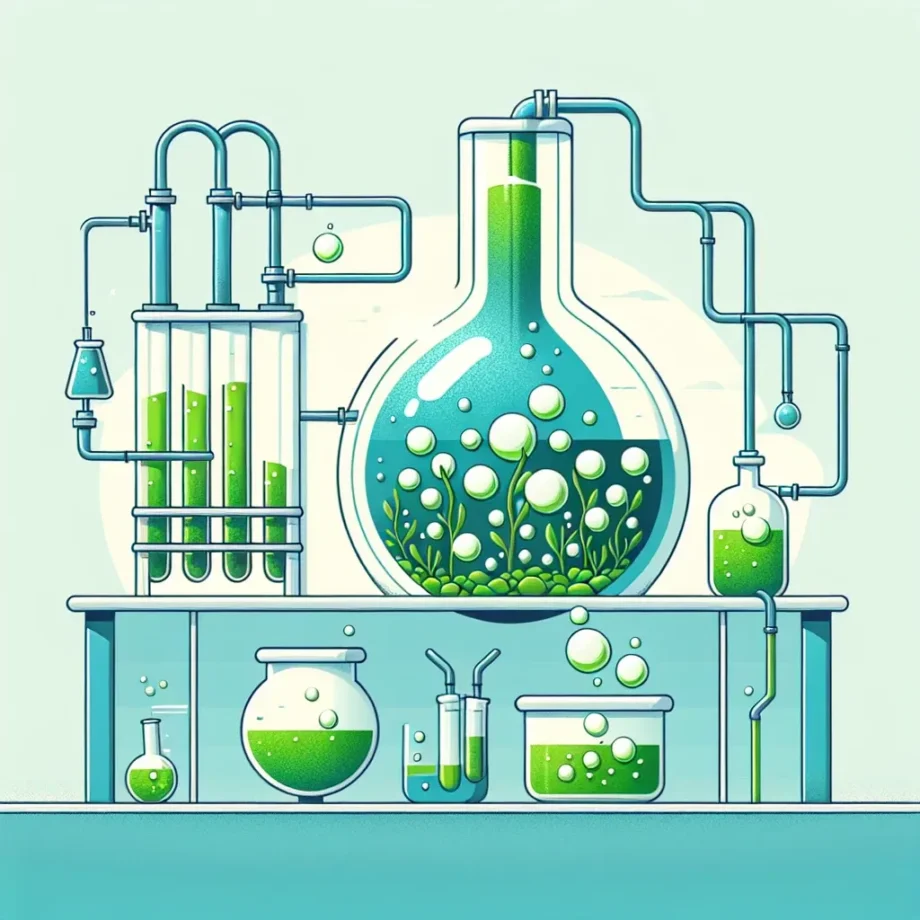
Introduction to Algae-Based Bioreactors
In the quest for sustainable energy solutions, algae-based bioreactors have emerged as a promising technology that converts carbon dioxide (CO2) into usable biofuels. These innovative systems harness the natural processes of algae, known for their rapid growth and ability to absorb CO2, making them a central player in combating climate change while providing renewable energy resources.
The Science Behind Algae and Biofuels
Algae are simple, photosynthetic organisms found in a variety of aquatic environments. They can produce lipids, which are oil-like substances that can be converted into biodiesel, a cleaner alternative to fossil fuels. The process involves cultivating algae in controlled environments, known as bioreactors, where they thrive on sunlight, CO2, and nutrients.
Types of Algae Suitable for Biofuel Production
- Microalgae: These tiny organisms are highly effective at converting CO2 into biomass and can yield high oil content.
- Macroalgae: Also known as seaweeds, they are less oil-rich but can be converted into biofuels through different biochemical processes.
- Cyanobacteria: Often referred to as blue-green algae, these organisms not only produce oxygen but can also generate biofuel precursors.
How Algae-Based Bioreactors Work
Step-by-Step Process
- Carbon Dioxide Absorption: The bioreactor system captures CO2 emissions from industrial sources or the atmosphere.
- Algae Cultivation: Algae are introduced into the bioreactor, where they are provided with light and nutrients.
- Photosynthesis: Through photosynthesis, algae convert CO2 and sunlight into organic matter and oxygen.
- Harvesting: Once the algae grow and accumulate, they are harvested to extract oils and biomass.
- Biofuel Production: The harvested biomass is processed to produce biodiesel, ethanol, or other biofuels.
Advantages of Algae-Based Bioreactors
Algae-based bioreactors offer several benefits that make them a compelling option for the future of renewable energy:
- Carbon Sequestration: By absorbing CO2, these bioreactors can mitigate greenhouse gas emissions.
- High Yield: Algae can produce significantly more oil per acre than traditional crops.
- Renewability: Algae can be cultivated continuously, providing a sustainable source of biofuel.
- Resource Efficiency: They require less land and water compared to terrestrial biofuel crops.
Challenges Facing Algae-Based Bioreactors
Despite their potential, algae-based bioreactors face several challenges:
- Cost of Production: The initial investment for setting up bioreactors can be high.
- Technological Barriers: Effective harvesting and processing techniques are still under development.
- Market Competition: Fossil fuels remain cheaper, making it difficult for biofuels to compete without subsidies.
Case Studies: Successful Implementations
Real-Life Examples
Several organizations and companies have successfully implemented algae-based bioreactors:
- Algenol: This company utilizes algae to produce ethanol from CO2, achieving high yield rates.
- Solazyme: Known for producing renewable oils from algae, they have partnered with various industries for sustainable biofuel solutions.
- Carbon Clean Solutions: They have developed technology to integrate CO2 capture systems with algae cultivation.
Future Predictions for Algae-Based Bioreactors
The future of algae-based bioreactors looks promising, with advancements in technology and increased awareness of climate change:
- Technological Innovations: Research is ongoing to improve the efficiency of algae growth and biofuel extraction processes.
- Policy Support: Governments may increase incentives for renewable energy, making algae biofuels more competitive.
- Market Expansion: As fossil fuel reserves deplete, the demand for sustainable alternatives will likely rise.
Cultural Relevance and Global Impact
The adoption of algae-based bioreactors transcends environmental concerns, influencing cultural shifts towards sustainability:
- Public Awareness: Educational campaigns are increasing awareness of the benefits of biofuels derived from algae.
- Global Partnerships: Countries are collaborating to share technology and research in algae biofuel production.
- Community Involvement: Local initiatives are encouraging the cultivation of algae for biofuels, promoting grassroots sustainability efforts.
Conclusion
Algae-based bioreactors represent a revolutionary step in converting carbon dioxide into usable biofuels. With their potential to reduce greenhouse gas emissions and provide renewable energy, they are a vital part of the solution to the global energy crisis. As technology advances and awareness grows, the future of this innovative approach looks brighter than ever, paving the way for a sustainable energy landscape.
